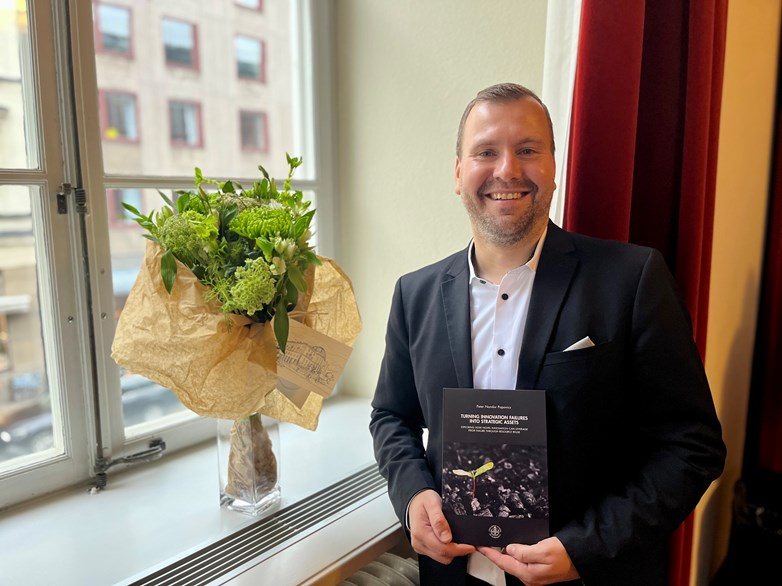PhD Defense | Transforming innovation failures into strategic assets: a deep dive with Dr. Peter Nandor Popovics
Research in focus: Dr. Popovics’ journey at the Stockholm School of Economics has led him to explore the untapped potential of failed innovation initiatives. His dissertation, “Turning Innovation Failures into Strategic Assets,” transcends the traditional narrative of failures merely providing valuable learning opportunities. Instead, it delves into how the remnants of failed ventures and innovation projects can be a treasure trove of resources for new innovation endeavors. Through a close examination of the experiences of serial entrepreneurs and successful innovation failure revivals in corporate settings, Dr. Popovics unveils a new dimension of entrepreneurial and corporate resilience, showcasing how past failures can pave the way for future innovation success.
Key findings:
- Dr. Popovics has developed a comprehensive typology of reusable resources from failed ventures, challenging the conventional view that innovation failures yield only lessons learned.
- His research demonstrates that, through the processes of resource catalysis and replication, a diverse array of resources from failed ventures can play a fundamental role in establishing the initial resource base for subsequent businesses, providing a silver lining to entrepreneurial setbacks.
- By studying what it takes to revive past innovation failures within large and mature firms, he highlights the significance of developing and applying both transformative and absorptive capacity to enable the transferability of technologies across application areas and target markets through a set of internally- and externally- oriented corporate practices.
Implications for the future: The ripple impacts of Dr. Popovics’ research are profound, not only contributing to academic knowledge but also providing a practical toolkit for reversing the course of innovation failure and ushering in a new era of resilience and success. His findings offer a beacon of hope for entrepreneurs and corporate innovation professionals, guiding them how to transform seemingly dead-end innovation outcomes into novel opportunities. Beyond the retrospective analysis of lessons learned, he advocates for prospective sense-making, exploring new innovation avenues while capitalizing on the resource remnants of failed innovation attempts. Educators can draw from his work to instill resilience and resourcefulness in the next generation of business leaders, teaching them to navigate the turbulent waters of innovation with grace and agility. Additionally, policymakers and business support organizations are provided with valuable insights into the life cycle of entrepreneurial ventures and corporate innovation projects, enabling them to cultivate ecosystems that nurture both success and “intelligent” failures.
About the researcher: Driven by a keen analytical mind and a passion for unraveling the intricacies of entrepreneurship and corporate innovation management, Dr. Peter Nandor Popovics has carved a niche for himself in the realm of innovation research. His work at the Stockholm School of Economics has effectively conveyed to entrepreneurs and innovation professionals how to transform innovation challenges into opportunities, providing them with fresh perspectives and pragmatic toolsets.
